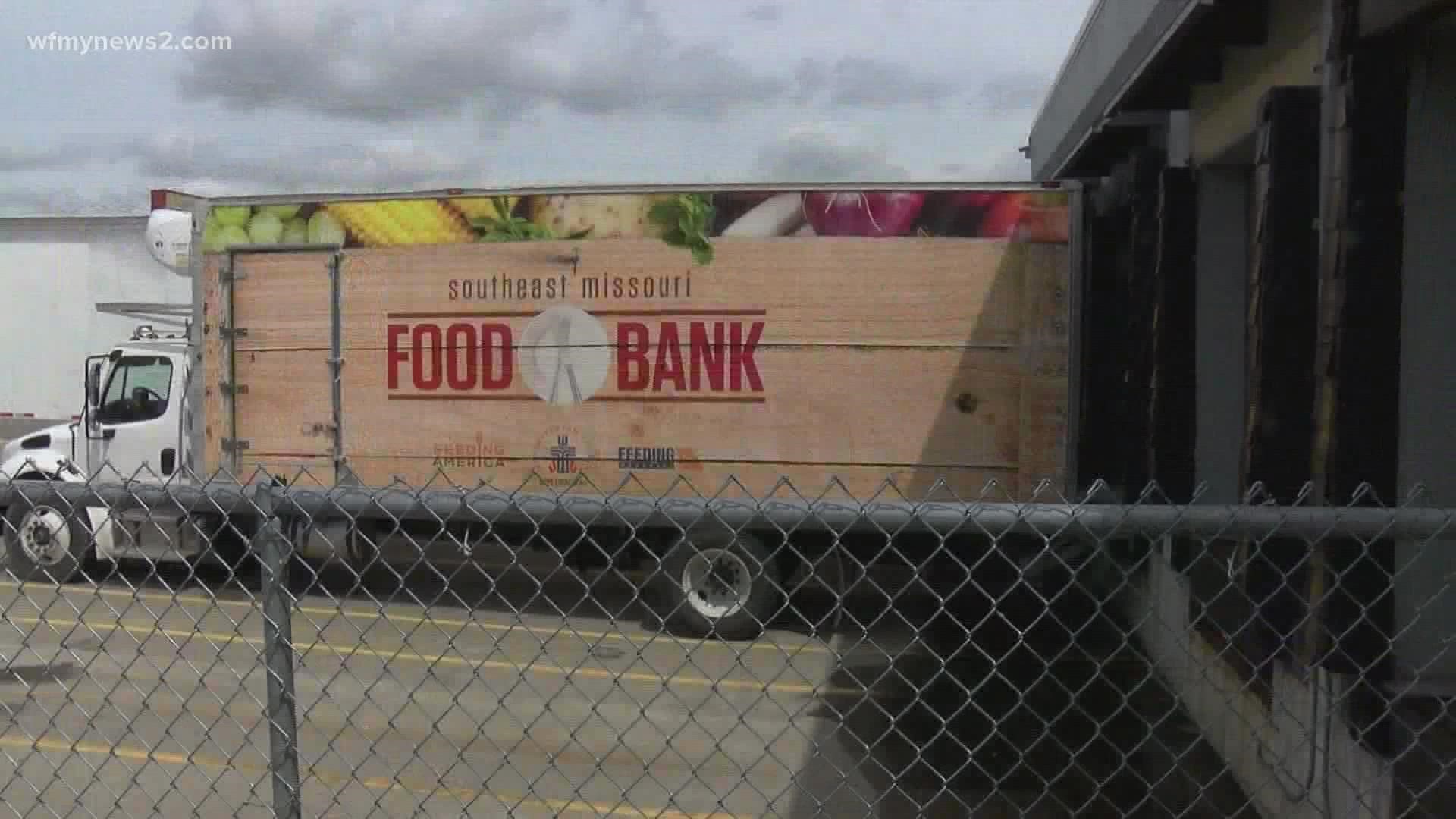GREENSBORO, N.C. — The Second Harvest Food Bank of Northwest North Carolina hosted a fundraiser event Wednesday to help address food insecurity across the area.
One in six people in the area served by the food bank experience food insecurity, according to its website. It said more than 100,000 people in Guilford and Forsyth County face hunger.
The problem impacts children hard. Second Harvest Food Bank said one in five children deal with food insecurity. That puts them at risk for things such as falling behind in school, developmental concerns and developing issues like anemia.
Guilford County has 18 food deserts, according to a map from the U.S. Department of Agriculture. The USDA defines a food desert as a "low-income tract where a substantial number or substantial share of residents does not have easy access to a supermarket or large grocery store."
The USA website said there are more than 65,000 food deserts across the United States. Millions of people have limited access to food.
Food insecurity and poor nutrition have a negative impact on all aspects of someone's health. Feeding America's website said people facing hunger disproportionately experience chronic diseases such as diabetes and high blood pressure.
Jamilla Pinder is the assistant director of healthy communities at Cone Health. Part of her work includes ensuring people have access to nutritious meals.
"A lot of people don't think when you're talking about food insecurity, how it directly impacts your mental health," Pinder said. "If you don't have access to food, that stress and anxiety kind of exasperates conditions."
Pinder said inadequate access to food leaks into all aspects of someone's life. They're more likely to more work because of health problems and perform worse from low energy.
Alice Smith is a registered dietitian and author. She said it's obviously difficult for some facing food insecurity to regularly get nutritious meals. Smith said to choose whole, nonprocessed foods to get the most out of your diet. She suggested choosing baby carrots instead of vegetable chips.
"Really think about eating things that are whole form, nonprocessed and full of nutrients," Smith said. "It'll also be cheaper and easier to access."
Millions of people receiving SNAP benefits received good news when the Department of Health and Human Services chose to extend the COVID-19 public health emergency on April 12. States that still have emergency declarations, like North Carolina, get extra money from the federal government. This means people using SNAP will continue receiving an extra $100 per month.
Second Harvest Food Bank said the pandemic made food insecurity worse. Google Trends support that. More people searched terms like "food banks near me" or "food stamps applications."
Google responded by launching a website that can connect people facing hunger with resources to get themselves fed.
You can make an impact and help those in your community facing hunger by donating to the Second Harvest Food Bank here.

